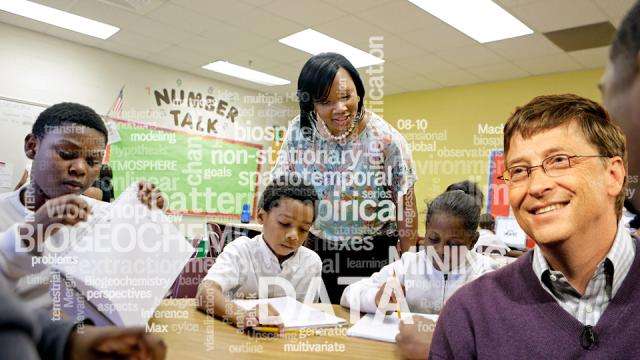
In an unprecedented move, education officials will hand over personal student data to a new private company to create a national database for businesses that contract with public schools.
Working with the city, state education officials are already uploading private information about students — their names, addresses, test scores, learning disabilities, attendance and disciplinary records — into a $100 million database called inBloom. Parents are furious that New York is joining eight other states in adopting the model without giving families a chance to opt out of sharing delicate information.
“I’m outraged,” said Karen Sprowal, 52, a stay-at-home mom; her 9-year-old son is a fourth-grader in Manhattan. “I send my child to school to be educated. I never agreed to have his information shared with private companies or stored in a database.”
Public Advocate Bill de Blasio sent a scathing letter to city and state officials protesting the move. “I don’t want my kids’ privacy bought and sold like this,” he said.
InBloom, a three-month-old database, is funded primarily by the Bill & Melinda Gates Foundation. A division of Rupert Murdoch’s News Corp. built the infrastructure for the new electronic portal. The state spent $50 million in federal grants to partner with inBloom and finalized its agreement in October to share data with the fledgling company. The portal “offers educators, students and their families the ability — for the first time — to view and verify information and data,” said Ken Wagner, associate state education commissioner.
City and state education officials said the data could be used by companies that produce teaching materials, like McGraw-Hill, to tailor their products to students’ needs. Those companies would not be allowed to disclose the information or sell it to companies that want to sell products to kids.
Officials vowed they would comply with a federal law, the Family Educational Rights and Privacy Act, which requires that the confidential information be protected.
“The inBloom database only becomes available to companies when the city or state hires companies to provide tools for our city,” said Adina Lopatin, deputy chief academic officer for the city Education Department. “No data is for sale or ever can be for sale.”
But privacy experts slammed the move to disseminate vulnerable student information. “It’s a lot of smoke and mirrors,” said Khaliah Barnes, administrative law counsel at the Electronic Privacy Information Center in Washington, which is suing the U.S. Education Department over this issue.
“What happens if a company using the data is compromised?” asked Barnes. “What happens if the company goes out of business? We don’t know the answers.”
Donna Lieberman, executive director for the New York Civil Liberties Union, slammed the city for failing to disclose the plan to the public or offer parents a chance to opt out. “Turning massive amounts of personal data about public school students to a private corporation without any public input is profoundly disturbing and irresponsible,” said Lieberman.
The state already compiles student demographic, enrollment and state assessment records. It does not collect or share students’ Social Security Numbers.
State officials said that for the past decade they have freely given student information to companies that are expressly given permission to access the data. The information is then used by private educational companies to create teaching materials for students.
States and school districts can choose whether they want to input their student records into the system. The new service will not cost the city any money at first, though inBloom officials said they will probably start to charge fees in 2015.
Representatives for inBloom did not respond to calls for comment.
Other states that have already signed on to release student data to inBloom are Colorado, Delaware, Georgia, Illinois, Kentucky, North Carolina, Massachusetts and Louisiana.
Originally published by the New York Daily News.
3 WAYS TO SHOW YOUR SUPPORT
- Log in to post comments
















